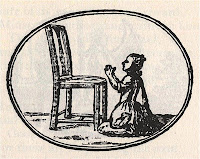 Universities are "oblivious" to racial inequalities and are failing to act on problems because they "see themselves as liberal and believe existing policies ensure fairness", it has been argued.
Universities are "oblivious" to racial inequalities and are failing to act on problems because they "see themselves as liberal and believe existing policies ensure fairness", it has been argued.Andrew Pilkington, professor of sociology at the University of Northampton, stated in a lecture, "Institutional Racism in the Academy", that the "sheer whiteness" of universities often means that "they ignore adverse outcomes and don't see combating racial/ethnic inequalities as a priority".
When the Macpherson report on the Stephen Lawrence murder inquiry was published in 1999, it famously spoke of a police investigation marred by "institutional racism". Jack Straw, the home secretary at the time, broadened the issue, suggesting that "any long-established, white-dominated organisation is liable to have procedures, practices and a culture that tend to...disadvantage non-white people".
In an attempt to remedy these problems, the government introduced colour-blind widening-participation strategies for students and equal-opportunity policies for university staff. The Race Relations (Amendment) Act 2000 identified a number of specific duties.
Professor Pilkington drew on research he had carried out for his recent book, Institutional Racism in the Academy: A Case Study, to assess how far universities have risen to the challenge.
The research compares an anonymous "Midshire" police force and a post-1992 university based in the same county. Although there was less racism in the university's "occupational culture", as reported by its black and minority ethnic (BME) employees, it shared with the police force "a taken-for-granted white norm" and was dominated by a white senior management.
The university's employment practices, lack of positive action and the low priority given to race equality also scored badly.
Although universities had undoubtedly addressed equality issues, if only in response to external pressures, Professor Pilkington suggested that "action was particularly evident in the period 2002-03", and had probably achieved more in relation to gender than ethnicity. Subsequent government agendas on themes such as "community cohesion" might also have shifted the spotlight from race.
There remained a great deal to be done and far fewer incentives for universities to devote time and energy to the area, he argued. In widening-participation programmes, "funding letters never mention race or ethnicity but invariably refer to social class or a proxy measure of it", he said, while "performance indicators are wholly class-based".
Pre-entry and access initiatives are given priority over equally vital "interventions once students have entered higher education", he added. And the specific needs of BME learners could drop off the agenda when incorporated into generic widening-participation policies.
Professor Pilkington concluded that "BME academic staff continue to experience significant disadvantage...10 years after the publication of the Macpherson report", while BME students continue to be less likely to be awarded good degrees.
Although adept at finding fault elsewhere, universities "remain oblivious of inequalities in our midst and the need to ensure that our own policies and procedures are evidence-based", he said.
From: http://www.timeshighereducation.co.uk


